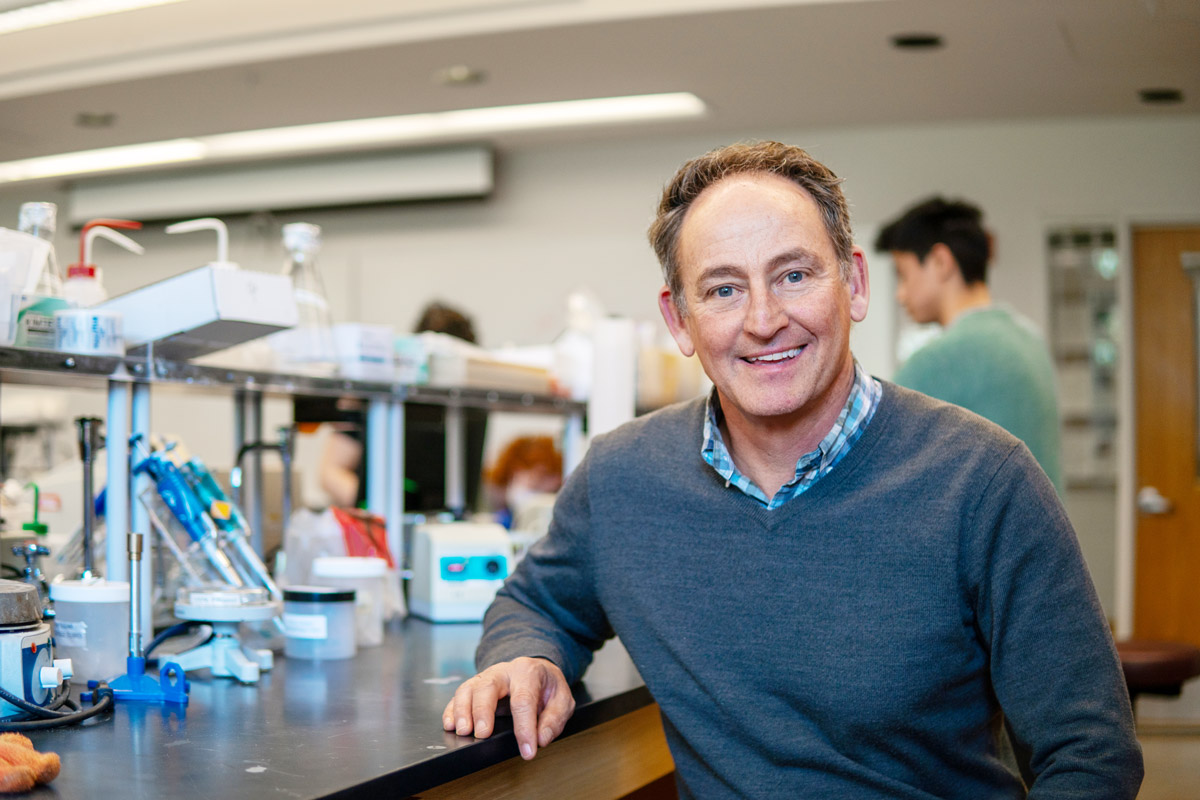Biology Professor Jay Mellies Elected to the American Academy of Microbiology
The honor recognizes 65 scientists for their contributions to the field.
When the American Academy of Microbiology announced its new class of fellows on February 15, Reed’s Amgen-Perlmutter Professor of Biology Jay Mellies was among the 65 scientists recognized. The honor reflects a rigorous nomination and consideration process; it often takes several tries for qualified candidates to make the cut. But this was Mellies’ first shot, making the recognition all the more exciting. “It's wonderful to have your work in teaching and research honored by your peers,” he said.
The American Academy of Microbiology is housed within the American Society for Microbiology, globally one of the oldest membership organizations dedicated to life science. This year, the Academy considered 156 nominations, winnowing the pool of candidates down to just 65 through a stringent peer-review process. Mellies joins a diverse class of fellows: 12% are international candidates, and 25% are women. The fellows will be officially recognized at an upcoming conference.
“Academy Fellowship signifies a distinguished accolade, and I am delighted to extend my congratulations and warm welcome to Jay Mellies as a member of the 2024 Cohort,” said Vanessa Sperandio, Ph.D., chair of the Academy governors. “Fellows are an outstanding assembly of scientists whose contributions have propelled discipline and whose knowledge benefits both the scientific community and broader society.”
The fellowship recognizes Mellies’ long-running research and teaching contributions to biology at Reed, which lately have been focused on the potential ecological applications of plastic-eating microbes, supported by funding from the National Science Foundation. On campus, students are frequently drawn to Mellies’ research on these bacteria, which can consume polyethylene terephthalate (PET) plastic — a substance used in common household objects like plastic water bottles, clothing, and food containers.
“They want to make a difference in the world,” said Mellies of what attracts students to his work. It’s “something that can help the planet. The plastic pollution problem is immense, and so all we can do is our part on a small level, and roll up our sleeves and get to work.”
As he builds upon this research, Mellies hopes that what he’s learned about PET plastic-eating bacteria can serve as the basis of large-scale solutions to the proliferation of plastic throughout the environment, a problem best epitomized by the Great Pacific Garbage Patch. Mellies is interested in “the commercial potential” of this growing knowledge base. “If we could make it more efficient, and we can make it to scale, then it has the potential to really make a difference in terms of recycling PET plastic,” he said.
